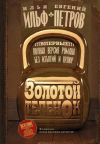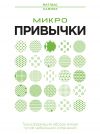Текст книги "Финансист / The Financier"

Автор книги: Теодор Драйзер
Жанр: Иностранные языки, Наука и Образование
Возрастные ограничения: +16
сообщить о неприемлемом содержимом
Текущая страница: 5 (всего у книги 16 страниц)
Chapter XVI
It was not long after the arrangement between Treasurer Stener and Cowperwood had been made that the machinery for the carrying out of that political-financial relationship was put in motion. The certificates gradually rose and were unloaded in rising amounts. Stener was satisfied. Two hundred shares had been carried for him and sold at one hundred, which netted him two thousand dollars. It was illegitimate gain, unethical; but his conscience was not very much troubled by that. He had none, truly.
It is difficult to make perfectly clear what a subtle and significant power this suddenly placed in the hands of Cowperwood. Consider that he was only twenty-eight. Imagine yourself by nature versed in the arts of finance, capable of playing with sums of money in the forms of stocks, certificates, bonds, and cash, as the ordinary man plays with checkers or chess. He knew instinctively what could be done with money—how as cash it could be deposited in one place, and yet as credit and the basis of moving checks, used in not one but many other places at the same time. The various local politicians and bosses—Mollenhauer, Butler, Simpson, and others—seeing the success of his efforts in this direction, speculated in city loan. He became known to Mollenhauer and Simpson, by reputation, if not personally, as the man who was carrying this city loan proposition to a successful issue. Stener was supposed to have done a clever thing in finding him.
There was no limit to the resources of which he now found himself possessed, except the resources of his own energy, ingenuity, and the limits of time in which he had to work. The politicians did not realize what money he was making of it all for himself, because they were as yet unaware of the subtlety of his mind. When Stener told him that he would formally own all of the two millions in city loan, Cowperwood was silent—but with delight. Two millions! His to play with! He had been called in as a financial adviser, and he had given his advice and it had been taken! Well. He was not a man who inherently was troubled with conscientious scruples.
“Cowperwood,” one day Stener said to him, “isn't there some street-railway property around town here that a man could buy in on and get control of if he had sufficient money?”
Cowperwood knew that there were such properties. His very alert mind had long since sensed the general opportunities here. The omnibuses were slowly disappearing. The incoming population would make great business in the future. And already he had conceived in his own mind the theory of the “endless chain” of buying a certain property on a long-time payment and issuing stocks or bonds sufficient not only to pay your seller, but to reimburse you for your trouble, to say nothing of giving you a margin wherewith to invest in other things—allied properties, for instance, against which more bonds could be issued, and so on, ad infinitum[52]52
ad infinitum – до бесконечности
[Закрыть]. It became an old story later, but it was new at that time. None the less he was glad to have Stener speak of this, since street-railways were his hobby, and he was convinced that he would be a great master of them if he ever had an opportunity to control them.
“Why, yes, George,” he said, noncommittally, “there are two or three that offer a good chance if a man had money enough. I notice blocks of stock being offered on 'change now and then by one person and another. It would be good policy to pick these things up as they're offered, and then to see later if some of the other stockholders won't want to sell out. If I had three or four hundred thousand dollars that I thought I could put into that by degrees I would follow it up[53]53
I would follow it up – я бы этим занялся
[Закрыть].”
Stener meditated. “That's a good deal of money,” he said, thoughtfully. “I'll talk to you about that some more later.”
Cowperwood knew that Stener did not have any two or three hundred thousand dollars to invest in anything. There was only one way that he could get it—and that was to borrow it out of the city treasury. But he would not do that on his own initiative. Someone else must be behind him and who else other than Mollenhauer, or Simpson, or possibly even Butler, though he doubted that, unless the triumvirate were secretly working together. But what of it? The larger politicians were always using the treasury, and he was thinking now, only, of his own attitude in regard to the use of this money. No harm could come to him, if Stener's ventures were successful; and there was no reason why they should not be. Even if they were not he would be merely acting as an agent.
He even dreamed of a combination between Butler, Mollenhauer, Simpson, and himself. But Butler was not a philanthropist. The combination must be obviously profitable. Frank began to dream of a city-wide street-railway system controlled by a few men, or preferably himself alone.
Chapter XVII
Because of the pressure of his growing affairs Frank Cowperwood had not paid so much attention to Aileen Butler as he might have, but he had seen her often this past year. She was now nineteen, and she was beginning to see the difference between good taste and bad taste in houses and furnishings.
“Papa, why do we stay in this old barn?” she asked her father one evening at dinner, when the usual family group was seated at the table.
“What's the matter with this house, I'd like to know?” demanded Butler. “I don't see anything the matter with this house. Your mother and I live in it well enough.”
“Oh, it's terrible, papa. You know it,” supplemented Norah, who was seventeen. “Everybody says so. Look at all the nice houses that are being built everywhere about here.”
“Everybody! Everybody! Who is 'everybody, I'd like to know?” demanded Butler. “I'm somebody, and I like it. Those that don't like it don't have to live in it. Who are they? What's the matter with it, I'd like to know?”
“You know it's bad, papa,” corrected Aileen, firmly. “It's old and cheap and dingy. The furniture is all worn out. That old piano in there ought to be given away. I won't play on it any more. The Cowperwoods—”
“Old!” exclaimed Butler. “Dingy, hi! Where do you get that? And where is it worn? Show me where it's worn.”
Mrs. Butler interfered. She was a stout, broad-faced woman, smiling-mouthed most of the time, with blurry, gray Irish eyes.
“Children! children!” (Mr. Butler was as much a child to her as any.) “You don't must quarrel now. Come now. Give your father the tomatoes.”
“Mama, how often have I told you not to say 'you don't must'?” pleaded Norah, very much disheartened by her mother's grammatical errors. “You know you said you wouldn't.”
“And who's to tell your mother what she should say?” called Butler. “Your mother talked before ever you were born, I'd have you know. She was working hard to let you have fine manners that you are parading before her!”
“Well, I think it's mean to live in this old place when people not rich as we are are living in better ones. The Cowperwoods—why, even the Cowperwoods—”
“Yes, the Cowperwoods! What about the Cowperwoods?” demanded Butler, turning squarely to Aileen—she was sitting beside him—his big, red face glowing.
“Why, even they have a better house than we have, and he's merely an agent of yours.”
“The Cowperwoods! The Cowperwoods! I'll not have any talk about the Cowperwoods. I'm not taking my rules from the Cowperwoods. Suppose they have a fine house, what of it? My house is my house. I want to live here. I've lived here too long to move away. If you don't like it you know what you can do. Move if you want to. I'll not move.”
“Oh, well, I will get out some day,” Aileen replied. “Thank heaven I won't live here forever.”
She remembered the beautiful reception-room, library, parlor, and boudoirs of the Cowperwoods, about which Anna Cowperwood talked to her so much—their dainty, lovely triangular grand piano in gold and painted pink and blue. Why couldn't they have things like that? Her father was unquestionably a dozen times as wealthy. But no, her father, whom she loved dearly, was of the old school. A rough Irish contractor. But she would just have to wait. Marriage was the answer—the right marriage. But whom was she to marry?
“But we might have a decent house,” insisted Aileen. “Or this one done over,” whispered Norah to her mother.
“Hush now! In good time,” replied Mrs. Butler to Norah. “Wait. We'll fix it all up some day, sure. You run to your lessons now. You've had enough.”
Norah arose and left. Aileen subsided. Her father was simply stubborn and impossible. And yet he was sweet, too.
“Come now,” he said, after they had left the table. “Play me something on the piano, something nice. And you can have a new piano any time you like. Go and buy. This looks pretty good to me, but if you don't want it, all right.”
Aileen squeezed his arm. What was the use of arguing with her father? And she played Schumann, Schubert, Offenbach, Chopin[54]54
Schumann, Schubert, Offenbach, Chopin – Шуман, Шуберт, Оффенбах, Шопен
[Закрыть], and the old gentleman strolled to and fro and smiled. He looked on her, his bright, healthy, beautiful daughter, and wondered what was going to become of her. Some rich man was going to many her—some fine, rich young man with good business instincts—and he, her father, would leave her a lot of money.
There was a reception and a dance to be given to celebrate the opening of the two Cowperwood homes—the reception to be held in Frank Cowperwood's residence, and the dance later at his father's. The Henry Cowperwood domicile was much more pretentious, the reception-room, parlor, music-room, and conservatory were much larger.
The preparation of this reception had been quite a matter of importance. The Tighes, Steners, Butlers, Mollenhauers, as well as Arthur Rivers, Mrs. Seneca Davis, Mr. and Mrs. Trenor Drake, and some of the younger Drexels and Clarks, whom Frank had met, were invited.
It was not possible, however, not to invite the Butlers, parents and children, particularly the children, since Cowperwood was personally attracted to Aileen and despite the fact that the presence of the parents would be most unsatisfactory. Even Aileen as he knew was a little unsatisfactory to Anna and Mrs. Cowperwood; and these two, when they were together supervising the list of invitations, often talked about it.
“She's so hoidenish,” observed Anna, to her sister-in-law, when they came to the name of Aileen. “She thinks she knows so much, and she isn't a bit refined.”
Mrs. Cowperwood, who was before her secretaire in her new boudoir, lifted her eyebrows.
“You know, Anna, I sometimes wish that Frank's business did not compel me to have anything to do with them. Mrs. Butler is such a bore, she doesn't know anything. And Aileen is too rough, I think. She comes over here and plays upon the piano, particularly when Frank's here. I know it must annoy him. All her pieces are so noisy. She never plays anything really delicate and refined.”
“I don't like the way she dresses,” observed Anna, sympathetically. “Now, the other day I saw her out driving, and oh, dear! You should have seen her! And her hands! You should have seen the way she held her hands—oh—just so—self-consciously. They were curved just so,”—and she showed how. “She had on yellow gauntlets, and she held the reins in one hand and the whip in the other. She drives just like mad when she drives. Oh, dear! Oh, dear! She does think she is so much!” And Anna giggled, half in reproach, half in amusement.
“I suppose we'll have to invite her; I don't see how we can get out of it.”
“Really, I like Norah,” commented Anna. “She's much nicer. She doesn't think she's so much.”
“I like Norah, too,” added Mrs. Cowperwood. “She's really very sweet, and to me she's prettier.”
“Oh, indeed, I think so, too.”
But Aileen was really beautiful and much above the average intelligence. She resented the fact that people could justly consider her parents ineligible, and for that reason her also. Cowperwood seemed to realize it. He was nice to her and liked to talk to her.
“Well, Aileen, how is it with you? How are your father and mother? I saw you today. You looked stunning.”
“Oh, Mr. Cowperwood!”
“You did. And you nice gold hair!”
“Oh, now, you mustn't say that to me. You'll make me vain. My mother and father tell me I'm too vain as it is.”
“Never mind your mother and father. I say you looked wonderful, and you did. You always do.”
“Oh!”
The color mounted to her cheeks and temples. Mr. Cowperwood knew of course. And already he was so much admired by so many, her own father and mother included, and by Mr. Mollenhauer and Mr. Simpson, so she heard. And his own home and office were so beautiful.
The reception brought a throng of people. Many of the guests were old friends. They gathered in the libraries and dining-rooms and talked. Aileen had created an impression in a street costume of dark blue silk with velvet pelisse.
“You look wonderful,” Cowperwood said as she passed him.
She strode into the dining-room and disappeared. Norah and her mother stayed to chat with Mrs. Cowperwood.
“Well, it's lovely now, isn't it?” breathed Mrs. Butler. “Sure you'll be happy here. Sure you will. When Eddie fixed the house we're in now, I said: 'Eddie, it's almost too fine for us altogether—surely it is, and he said, said, eh, 'Norah, nothing is too good for you'—and he kissed me. Yes, he did! Now what d'ye think of that?”
“It's perfectly lovely, I think, Mrs. Butler,” commented Mrs. Cowperwood, a little bit nervous.
“Mama loves to talk so. Come on, mama. Let's look at the dining-room,” said Norah.
At nine the evening guests began to arrive, and now the throng was of a different complexion—girls in mauve and cream-white and salmon-pink and silver-gray, and the men in smooth black helping them. The carriage doors were slamming, and new guests were arriving constantly. Mrs. Cowperwood stood with her husband and Anna in the main entrance to the reception room, while Joseph and Edward Cowperwood and Mr. and Mrs. Henry W. Cowperwood lingered in the background. Lillian's face and figure were still notable, though her face was not as smoothly sweet as it had been years before when Cowperwood had first met her. Anna Cowperwood was small and dark, with a turned-up nose, black eyes, a pert, inquisitive, intelligent, and somewhat critical air.
Aileen was erect, full-breasted; she was a little too emphatic, perhaps because of her burning vitality. Aileen had swept on to Cowperwood and his mother, who was near him.
“I can't tell you how nice you look,” Cowperwood whispered to her, familiarly, as though there was an old understanding between them. “You're like fire and song.”
He did not know why he said this. He was not especially poetic. He had not formulated the phrase beforehand. This girl made him set his teeth and narrow his eyes. Involuntarily he squared his jaw, looking more defiant, forceful, efficient, as she drew near.
Chapter XVIII
Aileen wanted to make an effective presentation of herself. Cowperwood appeared as something more definite in her mind than he had been before, and she could not get him out of her consciousness.
A vision of him came to her when she was dressing. She had dressed for him. She was never forgetful of the times he had looked at her in an interested way. He had said that she looked “stunning,” and she had thought how easy it would be to impress him tonight—to show him how truly beautiful she was.
She had stood before her mirror between eight and nine and pondered over what she should wear. She stood before the closet, looking at her bare arms and shoulders, her shapely figure, thinking of the fact that her left shoulder had a dimple. She turned her head from side to side, looking at the combined effect of her hair, her penciled brows, her dimpled shoulder, and the black beauty-spot[55]55
beauty-spot – мушка
[Закрыть]. If some one man could see her as she was now, some time! Which man? That thought scurried back like a frightened rat into its hole.
Then she put on the black silk dress with its glistening crimsoned-silver sequins, and she liked its coquettish drapery of tulle and silver about the hips. But something was wanting. Oh, yes, her neck! What to wear—red coral? It did not look right. A string of pearls? That would not do either. Finally, her jet necklet came into her mind, and, oh, how lovely it looked! How soft and smooth and glistening her chin looked above it. She was ready.
The ball-room, as she entered, was lovely enough. The young men and young women she saw there were interesting, and she was not wanting for admirers. She was as a honey-jar surrounded by too hungry flies.
Cowperwood was meditating. Two sexes. He was not at all sure that there was any law governing them. By comparison now with Aileen Butler, his wife looked rather dull, quite too old. And when he is ten years older she will look very much older.
His father and a number of his cronies were over in the dining-room of his grand home, glad to get away from the crowd. He would have to stay, and, besides, he wanted to. Had he better dance with Aileen? His wife cared little for dancing, but he would have to dance with her at least once. There was Mrs. Seneca Davis smiling at him, and Aileen. By God, how wonderful! What a girl!
“I suppose your dance-list is full. Let me see.”
He was standing before her. An orchestra was playing in the music room. The dance would begin shortly. He looked down into her eyes—those excited, life-loving, eager eyes.
“Let me see. Nine, ten, eleven. Well, that will be enough. I don't suppose I shall want to dance very much. It's nice to be popular.”
“I'm not sure about number three. I think that's a mistake. You might have that if you wish.”
She was falsifying. His cheeks flushed a little. Her own flamed.
“Well, I'll see where you are when it's called. You're wonderful. I'm afraid of you.”
He shot an interpretive glance into her eyes, then left. Aileen's bosom heaved. It was hard to breathe sometimes in this warm air.
While he was dancing first with Mrs. Cowperwood and later with Mrs. Seneca Davis, and still later with Mrs. Martyn Walker, Cowperwood had occasion to look at Aileen often, and each time that he did so there swept over him a sense of great vigor there, of beautiful raw, dynamic energy. She was so young. She was beautiful, this girl, and in spite of his wife's repeated derogatory comments he felt that she was nearer to his clear, aggressive, unblinking attitude than any one whom he had yet seen in the form of woman. She was unsophisticated, that was plain, but it would take so little to make her understand so much. She seemed so intensely alive. She passed close to him a number of times, her eyes wide and smiling, her lips parted, her teeth agleam, and he felt a stirring of sympathy and companionship for her which he had not previously experienced. She was lovely.
“I'm wondering if that dance is open now,” he said to her as he drew near toward the beginning of the third set. She was seated with her latest admirer in a far corner of the living-room.
“I hope you'll excuse me,” he added, deferentially, to her companion.
“Surely,” the latter replied, rising.
“Yes, indeed,” she replied. “And you'd better stay here with me. It's going to begin soon. You won't mind?” she added, giving her companion a radiant smile.
“Not at all. I've had a lovely waltz.” He strolled off.
Cowperwood sat down.
“I saw you dancing. You like it, don't you?”
“I'm crazy about it.”
“Well, I can't say that myself. It's fascinating, though. Mrs. Cowperwood doesn't like it as much as I do.”
“I think you dance very well. I watched you, too.”
“Oh, did you?”
“Yes.”
She was generating a problem in his life, or would if he let her. He was thinking of something to say—some words which would bring them a little nearer together. But for the moment he could not.
“Well, that was nice of you,” he added, after a moment. “What made you do it?”
The music was beginning again. The dancers were rising. He arose.
They had come out from behind the palms. He had put his hand to her waist. His right arm held her left, arm to arm, palm to palm. Her right hand was on his shoulder, and she was close to him, looking into his eyes. She looked away and then down without answering. She was so vigorously young, so truly beautiful.
“But you didn't answer,” he continued.
“Isn't this lovely music?”
He pressed her fingers. She lifted shy eyes to him, she was afraid of him. His personality was obviously so dominating.
“Very well, if you won't tell me,” he smiled, mockingly.
“Oh, I just wanted to see how you danced,” she said, tamely.
He smiled. It was lovely to be dancing with her. He had not thought mere dancing could hold such charm.
“Do you like me?” he said, suddenly.
She thrilled from head to toe at the question. She looked up quickly.
“Why, yes,” she answered, as the music stopped. She was glad they were walking toward a chair.
“I like you so much,” he said, “that I have been wondering if you really like me.” There was an appeal in his voice, soft and gentle.
“Why, yes,” she replied. “You know I do.”
“I need someone like you to like me,” he continued. “I need someone like you to talk to. I didn't think so before—but now I do. You are beautiful—wonderful.”
“We mustn't,” she said. “I mustn't. I don't know what I'm doing.”
Cowperwood understood. He walked away. He was almost nervous. It was quite clear to him that under the current code of society he had no right to do it. It was against the rules, as they were understood by everybody.
Правообладателям!
Это произведение, предположительно, находится в статусе 'public domain'. Если это не так и размещение материала нарушает чьи-либо права, то сообщите нам об этом.








































